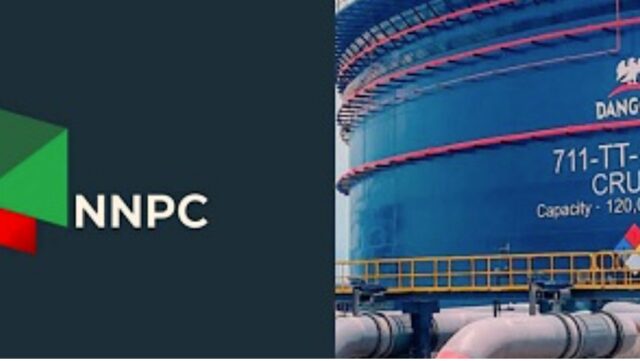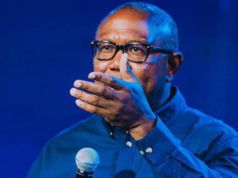The year began on a positive note with the commencement of operations at the Dangote Refinery, Africa’s largest single-train refinery. This milestone marked a crucial step towards Nigeria’s goal of energy self-sufficiency.
However, the refinery’s operations were marred by crises between Dangote, oil regulators and other players in the sector. The issues were eventually resolved, largely, but their implications for the industry were significant. In another development, the Port Harcourt Refinery, one of Nigeria’s previously moribund refineries, began operations after a major rehabilitation.
The Nigerian National Petroleum Company Limited (NNPC Ltd) also made a significant move by terminating its exclusive purchase agreement with the Dangote Refinery, citing the need to promote competition in the industry.
Also, the year witnessed a significant petrol price hike, which put a strain on the economy. The price hike was initially followed by petrol scarcity, further exacerbating the economic hardship faced by Nigerians. Despite these challenges, the country’s oil sector recorded some gains as the country won the bid to host the $5 billion Africa Energy Bank.
Other notable developments in the sector include the launch of a new crude oil grade, Utapate, and the divestment of international oil companies, paving the way for local companies and indigenous players to take on a more prominent role in the industry.
In this report, PREMIUM TIMES presents a breakdown of the key events that shaped the outgoing year.
Dangote Refinery begins production
The 650,000 barrels per day Dangote Petroleum Refinery commenced production of diesel and aviation fuel in January.
Announcing the commencement of production, the company said the refinery had received six million barrels of crude oil at its two SPMs 25 kilometres from the shore.
The first crude delivery was done on 12 December 2023, and the sixth cargo was delivered on 8 January.
The company made a further move towards the commencement of the production of refined petroleum products with the receipt of an additional one million barrels of bonny light crude supplied by the Nigeria National Petroleum Company (NNPC Ltd).
In April, the company commenced supplying petroleum products to the local market.
Commissioning of gas infrastructure projects

In May, President Bola Tinubu commissioned three gas infrastructure projects in Imo and Delta states.
The projects commissioned by the president include the ANOH-OB3 CTMS gas pipeline and ANOH gas processing plant in Assa Community, Ohaji/Egbema LGA, Imo State, and the AHL gas processing plant, two gas projects in Kwale in Delta.
The projects, being undertaken by the NNPC Ltd and partners, are in line with the president’s commitment to leverage gas to grow the economy significantly.
Dangote, oil regulators’ crisis
The crisis between the Dangote Group, the NNPC Ltd, petroleum regulators and some private oil firms was a major issue in Nigeria’s oil sector in 2024.
In June, the Dangote Group accused some international oil companies of sabotaging the plant’s operations by refusing to supply crude or offering oil at higher premiums than market prices.
The private refinery also clashed with the Nigerian Midstream and Downstream Petroleum Regulatory Authority (NMDPRA), which claimed diesel from the refinery has sulphur content levels above the allowed threshold. The regulator also accused Dangote of seeking to be a monopoly.
In refuting the allegation, the President of Dangote Group, Aliko Dangote, took lawmakers visiting the refinery to a laboratory within the plant, where diesel from the refinery was tested alongside two different imported samples.
The results showed the sample from the refinery’s diesel had much lower sulphur than the imported ones.
Following the crisis, Mr Dangote announced a halt in plans to invest in Nigeria’s steel industry.
In July, the Federal Executive Council (FEC) directed NNPC Ltd. to engage Dangote Refinery and other local refineries to resolve the dispute over the sale of crude oil to them.
The FEC, presided over by President Tinubu, also directed that crude oil sales to the refineries be made in naira and that the refineries, located in Nigeria, sell their refined products to the Nigerian market in naira.
In October, the Nigerian government said it had officially commenced the sale of crude oil and refined petroleum products in Naira.
NNPC vs. Dangote Refinery
The NNPC Ltd ended its exclusive purchase agreement with Dangote Refinery in October. This decision opened up the market, allowing other marketers to buy petrol directly from the refinery.
Initially, in September, Devakumar Edwin, vice president at Dangote Industries Limited, announced that the 650,000 barrels per day Dangote Refinery had commenced petrol production. At the time, Mr Edwin explained that NNPC Limited would buy its product exclusively.
However, NNPC later clarified that it was not the sole offtaker of all products from the Dangote Refinery, and the refinery was free to sell its petrol to any marketer.
Despite this, NNPC began loading petrol from the refinery as the sole off-taker on 15 September. Later, some major petroleum marketers were approved to lift the product, but independent marketers remained excluded.
The House of Representatives intervened on 26 September, calling on the federal government to mandate NNPC and Dangote Refinery to allow independent marketers to lift petrol directly from the refinery.
Eventually, NNPC ended its exclusive purchase agreement, and the Nigerian government confirmed this stance on 11 October.
Fuel price hike
The year 2024 witnessed a substantial fuel price surge, significantly impacting businesses and households.
On 3 September, the NNPC increased the price of petrol at its pumps from N617 per litre to between N855 and N897, depending on location. This development at the time occurred amidst struggles faced by the nation’s oil company in supplying the local market.
Furthermore, in October, petrol pump prices rose to N998 and N1,030 per litre at various NNPC outlets in Lagos and Abuja, respectively. This price hike followed the NNPC’s decision to terminate its exclusive purchase agreement with Dangote Refinery.
Fuel scarcity

In 2024, fuel scarcity hit major cities across Nigeria, with attendant effects on businesses and households.
This also prompted commercial bus drivers to increase their fares in major towns and cities, including the nation’s capital. As a result, black marketers made brisk business selling at prices ranging from N1,000 to N1,200.
$5 billion Africa Energy bank
In a significant development, Nigeria on 4 July won its bid to host the headquarters of the Africa Energy Bank (AEB).
The Minister of State for Petroleum Resources (Oil), Heineken Lokpobiri, while speaking to journalists after a virtual meeting of the council of ministers of the African Petroleum Producers Organisation (APPO) at the time, said Nigeria emerged as the preferred host nation amidst stiff competition from Ghana, Benin, Algeria, South Africa, and Cote d’Ivoire.
New crude oil grade
In August, NNPC Ltd announced the introduction of Utapate crude oil blend, a new crude oil grade, into the international market.
At the time, the company said from Oil Mining Lease (OML) 13, entirely operated by NNPC Exploration and Production Limited (NEPL), the Utapate crude oil blend commenced operations in July as its first cargo headed for Spain.
Port Harcourt refinery

In November NNPC Ltd said Port Harcourt refinery had commenced production after a long period of rehabilitation.
The NNPC Ltd said the refinery began truck loading of petroleum products on Tuesday 26 November.
Divestment
Oil companies’ divestment was a pivotal event that shaped Nigeria’s oil sector in 2024. International oil companies (IOCs) such as TotalEnergies, ExxonMobil, and Eni sold off their stakes in onshore oil fields to local companies and indigenous players.
In October, the Nigerian government approved four major oil divestments including the sale of ExxonMobil onshore assets to Seplat Energy, more than two years after the deal was first secured.
In December, Shell Petroleum Development Company of Nigeria Limited (SPDC) received ministerial consent to sell its Nigeria onshore oil business to Renaissance Africa Energy Company Limited.
OPEC’s decision
In 2024, the Organisation of Petroleum Exporting Countries (OPEC) made several pivotal decisions that significantly impacted the global oil market.
In March, OPEC announced an extension of additional voluntary cuts of 2.2 million barrels per day for the second quarter of 2024. The following month, OPEC and its allies opted to maintain their oil output policy unchanged until their June meeting.
Subsequently, in June, the oil cartel agreed to extend its current oil output voluntary cuts until the end of 2025. In a final move for the year, OPEC and its allies agreed in December to extend these cuts until the end of 2026.
Mr Lokpobiri said these resolutions for Nigeria provide a strategic pathway to achieving the nation’s 2025 production target of 2.06 million barrels per day (inclusive of condensates), as outlined in the draft 2025 appropriation bill, positioning the country to leverage its resources effectively while aligning with global market trends.
Oil theft/pipeline vandalism
Crude theft and pipeline vandalism continued to plague Nigeria’s oil sector throughout 2024. Numerous illegal refining sites were discovered in the country’s oil-producing region by security agents.
In March, the Group Managing Director of the NNPC Ltd, Mele Kyari, said the company recorded 9000 infractions on the pipeline network in one year.

He added that between 2022 and March 2024, 6,465 illegal refineries were deactivated, and 4,876 illegal connections to a pipeline out of 5,570 were discovered.
In September, the Defence Headquarters announced that troops from Operation Delta Safe had destroyed 897 illegal refining sites across the Niger Delta region in the third quarter of the year.
Oil production
Nigeria’s oil production experienced significant fluctuations in 2024. The country’s oil production output fell to 1.322 million barrels per day (mbpd) in February 2024, from 1.427 million barrels per day in January 2024, according to OPEC data.
This decline continued in March, with production dropping to 1.231 million barrels per day. The consecutive monthly decline resulted in a significant loss of revenue, with Nigeria reportedly losing about N720 billion.
In response to the decline, the NNPC Ltd declared a state of emergency on Nigeria’s crude oil production on 2 July. The move, according to the company, aimed to increase Nigeria’s crude oil production and grow its reserves.
Additionally, the Nigerian government approved $21 million for the metering of 187 oil flow stations across the Niger Delta region to promote effective monitoring of the country’s crude oil production and distribution.
The efforts to combat oil theft and increase production appear to be yielding results. On 14 November, NNPC Ltd said it had achieved 1.8 million barrels per day of crude production following continuous dislodgement of pipeline vandals and crude oil thieves.
The Chief Production War Room Officer of the NNPC Ltd, Lawal Musa, said the achievement was based on the collaboration between the leadership of NNPC, stakeholders and security agencies.
Warri Refinery commences operations

Nigerians got a good New Year gift when two days to the end of 2024, the NNPC announced the recommencement of operations at the public refinery in Warri.
The NNPC announced on 30 December that the refinery had been rehabilitated and had commenced producing petroleum products.
President Bola Tinubu also confirmed that the refinery was now working at 60 per cent capacity. The president also said the refinery was not producing petrol yet.
“WRPC will focus on producing and storing critical products, including Straight Run Kerosene (SRK), Automotive Gas Oil (AGO), and heavy and light Naphtha,” the president’s spokesperson wrote.
Outlook
Speaking with PREMIUM TIMES, Dan Kunle, an energy expert, expressed cautious optimism about the prospects of the sector in 2025.
Mr Kunle noted that a peaceful operating environment, coupled with improved regulatory frameworks, could lead to a more productive year for the sector in 2025.
Key factors that could drive growth in the sector, according to him, include the resolution of community issues, increased investment in onshore assets, and the successful completion of oil companies’ divestment transactions.
Additionally, he said the regulator’s efforts to create a more robust and investor-friendly environment are expected to yield positive results.
“All other things being equal, 2025 will be more productive than 2024 for the sector. I am consciously optimistic that very dramatic improvement could come. But let’s remain open that the right thing will be done.
“With the right reforms and a peaceful operating environment, the sector could witness significant growth, development, increased oil production, growing investments in natural gas infrastructure, and upstream sector growth,” he added.







